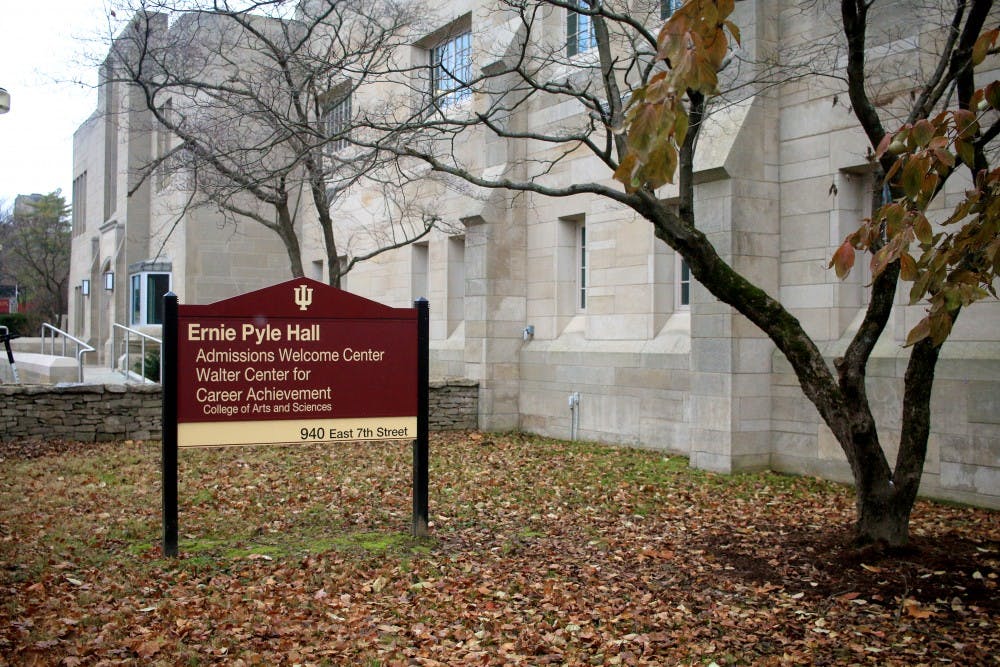Internship season is in full swing at IU. Students across all majors and programs are furiously typing cover letters, updating their resumes and emailing professors for recommendations.
Internships provide students with real-world experience and can give them a competitive edge in the job market after graduation. Some undergraduate programs at IU even require students to complete an internship in order to graduate.
“We always tell students, ‘You need to do well in the classroom, but you also need to showcase using these skills in work settings,’” said Justin Zuschlag, a senior associate director of IU’s Walter Center for Career Achievement.
But in order to get practical experience, some students may have to work for free. In January, the U.S. Department of Labor loosened the requirements a company must meet to make an internship unpaid, which may lead to more unpaid internships on the market.
Unpaid internships have been a subject of debate for years. Critics say unpaid internships are impractical for students who cannot afford housing and living expenses.They also argue that students whose families can afford to financially support them gain an unfair advantage.
Proponents claim working and making connections in students' fields are enough compensation.
While the number of paid internships has increased in recent years, unpaid internships have been on the decline. Forty three percent of 2017 graduates completed unpaid internships during their undergraduate years as opposed to 48.7 percent in 2011, according to the National Association of Colleges and Employers.
IU senior Emily Tucker is an arts management major who completed an unpaid internship over the summer at Secretly Group, a group of independent record labels located in Bloomington. Tucker said she took the internship because she knew she could support herself with her job doing social media and graphic design work for The Pourhouse Cafe.
There was one problem: When Tucker registered her internship for college credit, she was charged roughly $200 in tuition.
“Because it was the only credit I was taking over the summer, none of my usual scholarships covered it because those are only per fall and spring,” Tucker said.
Because she needed the credit to complete her degree, Tucker said she ended up taking out a student loan to cover the cost of the class.
“That will just be another expense for later,” Tucker said.
The Walter Center offers unpaid internship funding for undergraduate and graduate students in the College of Arts and Sciences. Zuschlag said students who apply for funding typically receive between $1,000 and $5,000 depending on the availability of funds and the number of applicants.
Zuschlag said he and his colleagues try to work with students to determine the best way for them to gain practical experience without struggling to support themselves. If an internship is only a couple hours a week, he said it may be practical for students to work another job at the same time.
If the unpaid internship is in another part of the country or has hours that bar students from working another job, they may want to reconsider.
“One of the things we talk to students about is that, you know, unpaid internships across the country is not the only way to get good experience for post-graduation,” Zuschlag said.
Zuschlag said smaller internships closer to home may actually be better for students than programs at big-name companies across the country. Internships at smaller companies may give students more meaningful work due to smaller staff sizes, which gives students a chance to improve and expand their skills.
A couple years ago, Zuschlag said he helped an apparel merchandising major who could not afford to take an unpaid summer internship in California. The student approached her employers at Old Navy to take on some creative projects at her job instead, giving her practical experience and a chance to improve her portfolio.
“You do not have to take an unpaid internship or take a loan out and get a bunch of debt,” Zuschlag said. “That’s definitely not the only way to get the good experience.”




